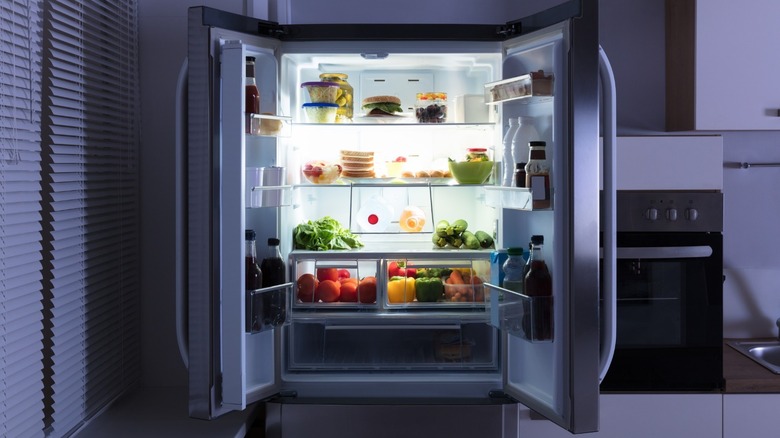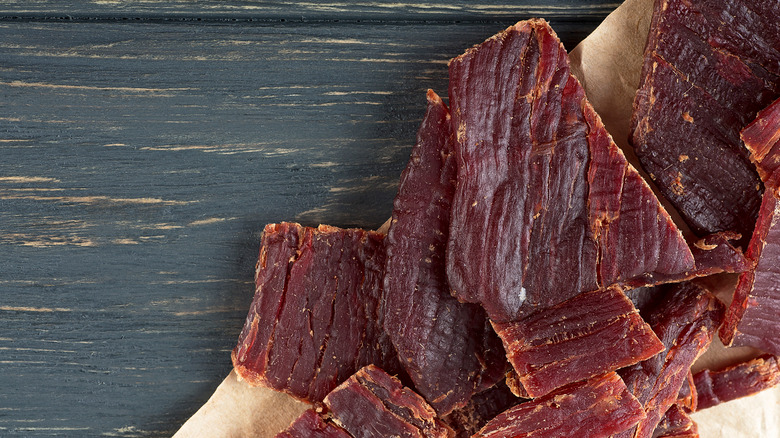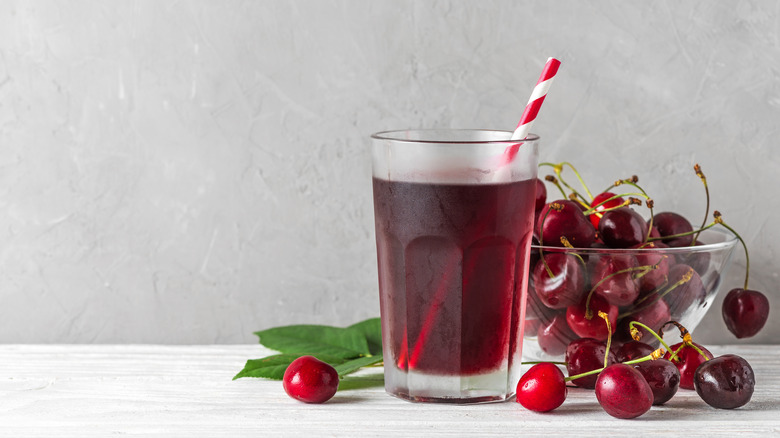The One Food Type You Shouldn't Eat Before Bedtime
Food fashions come and go. And even what's considered healthy can change, subject to new scientific research, changes in food production, and, yes, tastes. But one thing that never changes is people's need for sleep. But for many Americans (11%, according to some studies), a good night's sleep is elusive, per the American Sleep Apnea Association.
There are a number of factors involved in sleeping well, including external lights, physical activities, phone usage, and hormones (per Experience Life). But you can help get a better, sounder evening's rest by eating the right kinds of foods — and avoiding the others — before you go to bed.
First of all (and perhaps most disappointing to food lovers), eating right before bed isn't usually a great idea — it's best to stop eating a couple of hours before going to sleep, per Experience Life. When your body needs rest, spending extra time digesting should not be on the menu. This is a key reason that eating large amounts of protein before hitting the sack may not be ideal, according to registered dietitian Emily Wunder, MSCN, RD, LDN.
Eating protein before bed might not be wise
"I would not say it is 'bad' to eat protein before bed, but it could impact your sleep," says registered dietitian Emily Wunder, MSCN, RD, LDN. "Protein is a more complex food for the body to break down, so it requires some extra work. This is not the best thing for your body to be doing when it is trying to relax and wind down. Ideally, your digestive system should be relaxed and ready for a long, quiet night."
Other no-nos include alcohol, as it can cause interrupted sleep, and, naturally, products containing caffeine. While the problem with consuming caffeine before bed is obvious, some of the foods that contain caffeine might surprise you, such as chocolate and sugar cereals, per Issuu. So, watch your late-night labels.
What should bedtime snackers reach for, then? Are carbs good? "Carbohydrates, compared to protein and fat, require less energy for the body to digest, so [they] would be the best food group to have before bed," Wunder says. "However, any food immediately before bed can cause some interruptions in sleep, so try to finish eating about two hours before going to bed."
Better before-bed snack ideas
So, what should you eat before bed? Registered dietitian Emily Wunder has some ideas. "There are some specific carbohydrates to go for later in the evening that have sleep promoting benefits," Wunder says. "Cherries and cherry juice are a natural source of melatonin, which helps to regulate sleep and is triggered by darkness."
Other easy snacks Wunder recommends include complex carbs and whole fruits. "Bananas contain tryptophan, which is an amino acid that stimulates calming hormones. They also have potassium and magnesium which help muscles relax," she says. "Kiwis provide serotonin, which is involved in the sleep and awake cycle. Lastly is oatmeal or whole-wheat toast, which has more of that calming magnesium / decreases cortisol, which is a stress hormone, and stimulates sleep promoting serotonin."
And while experts are divided on dairy, drinking warm milk at bedtime does seem to have some soothing properties, per The New York Times. Now, there's something to call home about. But not now — it can wait until the morning.


